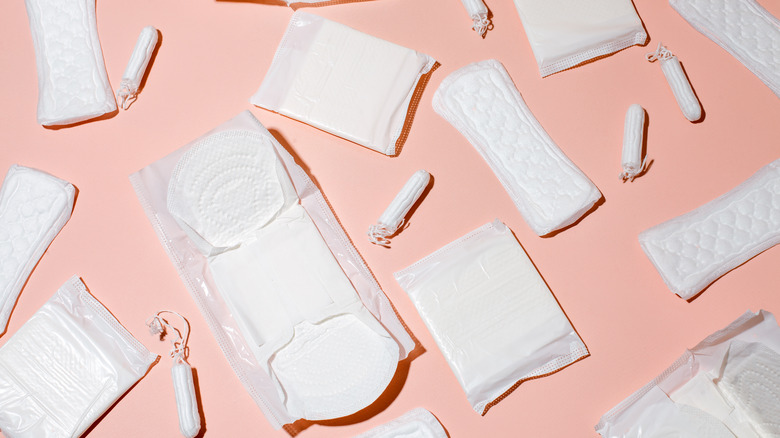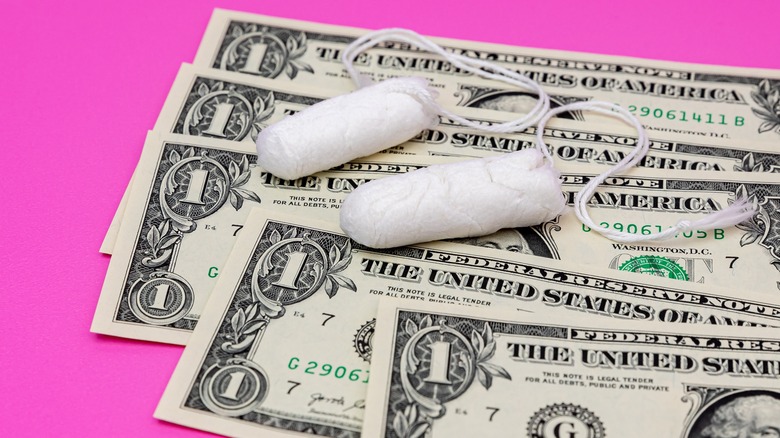CVS Is Making A Bold Move Concerning Feminine Products
Being caught out in the world in need of a pad or a tampon can be potentially stressful and embarrassing for a lot of people, according to The Hill. But for some, the issue is more dire because they may have to choose between buying food or buying period products, whether it's pads, tampons, or period underwear.
With legislative approval in 2020, Scotland became the first country to offer period products for free, per NPR. Other countries offer period products for free within schools as do 17 states and Washington D.C., per The Hill. The Menstrual Equity For All Act of 2021 has been introduced in the US House of Representatives, which would provide funding for period products at a variety of locations nationwide, including schools and homeless shelters. All of these initiatives have the goal of helping to combat period poverty — a name for the struggle to afford needed period products like tampons and pads. Period poverty, according to the World Bank Group, can also include a lack of access to hygiene facilities and education about periods. Overall, it impacts 500 million people worldwide.
CVS is dropping prices on period products in its stores
One company stepping up to the plate to help with the cost of period products is CVS. They will be reducing the price of the CVS Health and Live Better period products, including tampons, menstrual pads, liners, and cups, per Fortune Well. They will also cover the sales tax on those products in 12 states: Arkansas, Georgia, Hawaii, Louisiana, Missouri, South Carolina, Tennessee, Texas, Utah, Virginia, Wisconsin and West Virginia. Currently there are 22 states that charge sales tax on period products, according to Alliance for Period Supplies. The states left off the CVS list are because of legal barriers regarding third-party tax payers.
For those who menstruate for about 3,500 days out of their lives, or 10 years, it costs around $1,800, according to the American Medical Association.
CVS also noted they're eliminating the "pink tax" in their stores, according to Fortune Well. The "pink tax" is the reference to the fact that oftentimes products marketed to women are more expensive than the equivalent product that's marketed to men, per Business Insider.

